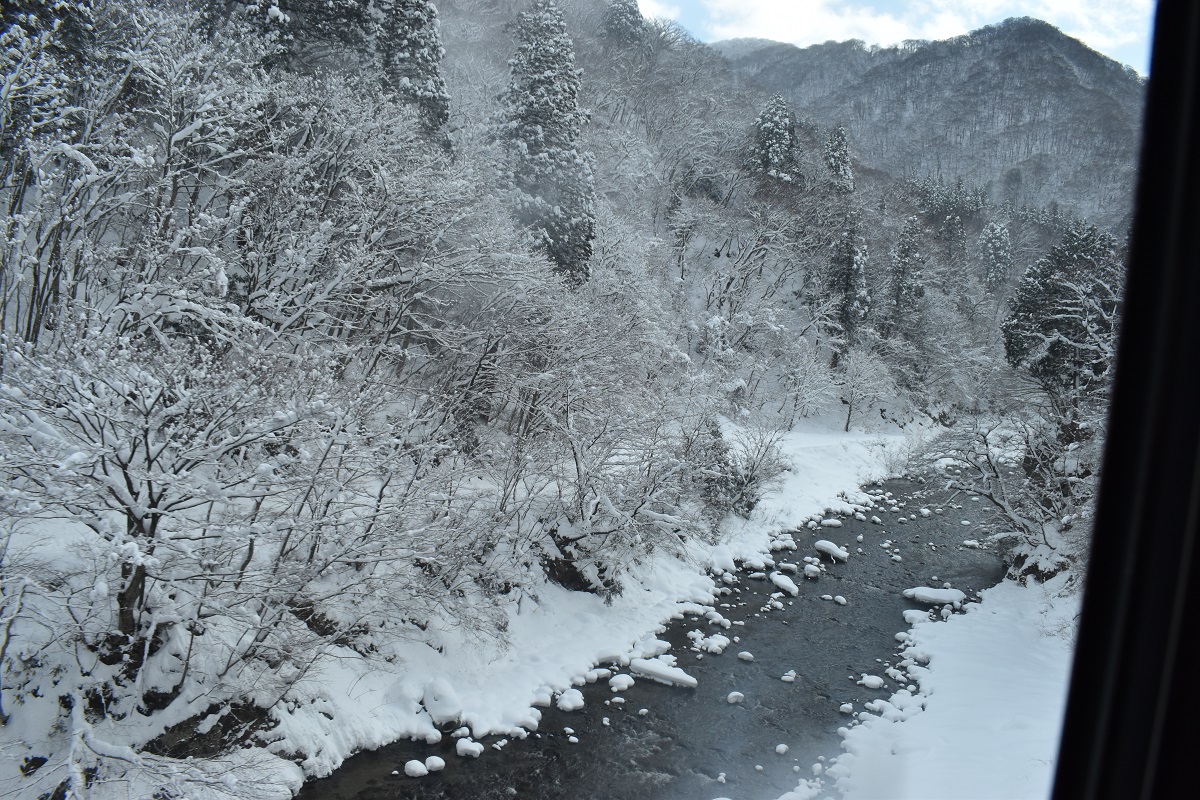
The sea near Iwate Prefecture is a good fishing ground where cold and warm currents intersect. In addition, the ‘rias’ coast has deep natural coves created by the sinking of mountains, making it a natural good port, and the fishing industry has developed in combination with good fishing grounds.
I learned the above when I was in elementary school, but I came here to learn that the northern half is actually a raised coast. The coast of Kita-Sanriku has a series of cliffs, and there is no very good natural port. It means that there are many things you can not understand unless you come.

The Nedari-hama promenade is a short, but refreshing, private beach-like shore and is a part of Michinoku Coastal Trail
Anmo-ura cliff and waterfall that directly falls into the sea (photo below)

Kita-Yamazaki cliff viewpoint, where eastern wind blows over the cold current from the north, becomes thick fog and you can’t see anything easily, but if you don’t give up, you can open your view as you descend to the observatory below the cliff. However, going uphill is tight.
Fudai Sluice: The scars of the Great East Japan Earthquake

The Fudai sluice on the way to Kita-Yamazaki was built from the lessons learned by the victims of the two tsunamis. Convincing the opposition, a 15.5-meter-hight lock was built at 300 meters from the river mouth over a 12-year period. The tsunami exceeded this during the Great East Japan Earthquake, but the town of Fudai located upstream of the floodgate escaped.


